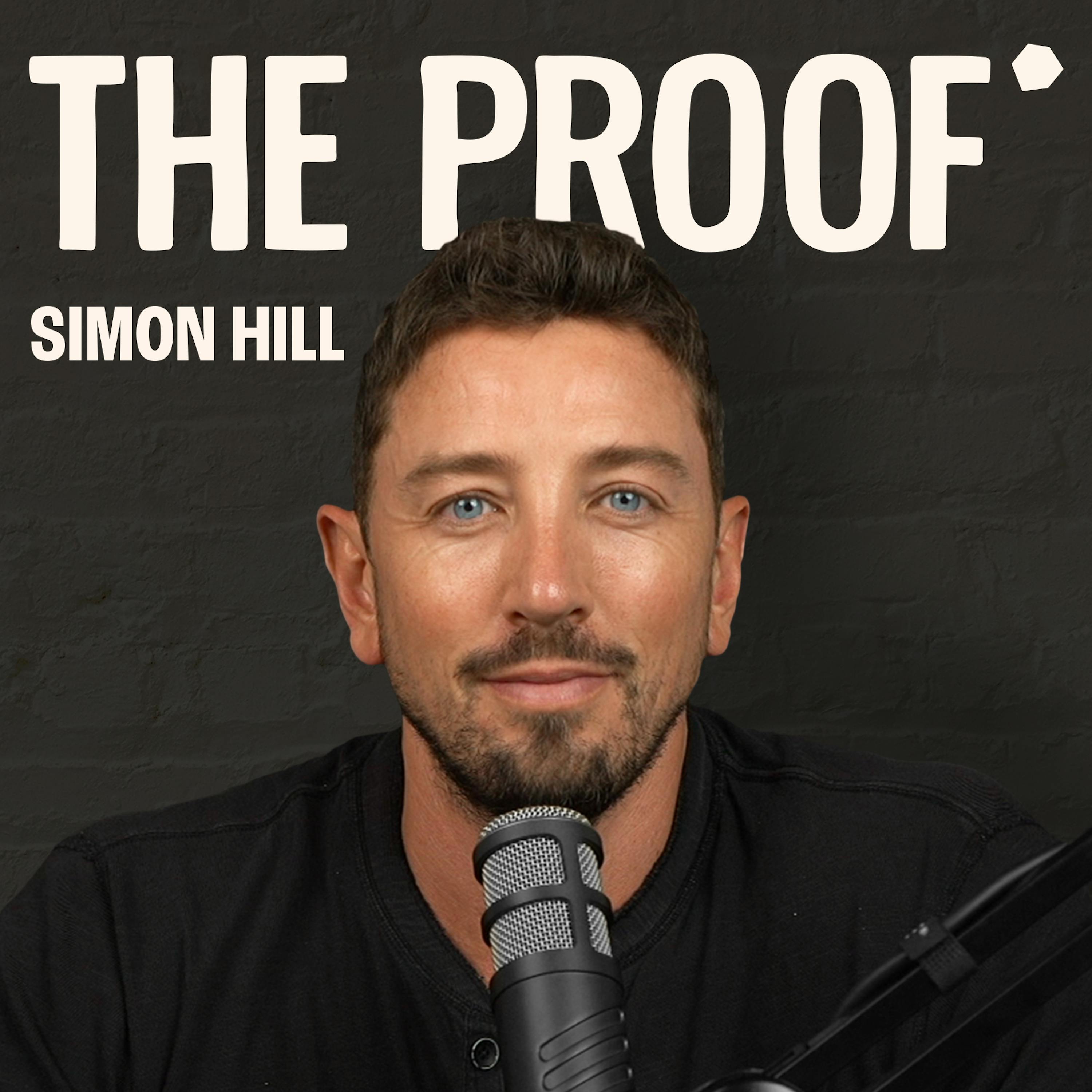.jpg)
The Plant Centered and Thriving Podcast
Welcome! If you're looking for plant-based inspiration, you've come to the right place! This podcast is here so you don’t have to feel alone on your plant-based journey. You'll hear from individuals who have taken the leap to go plant-based, why they did it, the struggles they faced, their words of wisdom for you, and how they're thriving now.
The Plant Centered and Thriving Podcast
A Fighter's Diet: George's Plant-Based Path to Beating Cancer
"The doctor said if you pursue diet to treat this you’ll be dead in a year. I said okay I need to find someone else."
George, a 64 year old man who took pride in his health, was blindsided by a devastating cancer diagnosis after a nagging cough. He had grey zone lymphoma, a rare cancer. After doing some research George knew he was not interested in the traditional route. I'm honored to share George's candid discussion about his journey from confusion to clarity, and how a website called "Chris Beat Cancer" influenced his decision to combine conventional treatments with holistic dietary strategies. We step into the world of plant-based nutrition and its impact on his cancer treatment. George walks us through his dietary evolution as well as his lifelong, unwavering commitment to exercise in order to combat this disease. This conversation serves as inspiration for those of you out their trying to make their way through health challenges with diet and lifestyle at the helm.
Resources from this Episode:
Chris Beat Cancer
Essential Health and Wellness
John Robbins
Dr. Mark Hyman
Dr. Michael Greger
_____________________________________________________________________
WE WANT TO HEAR FROM YOU!
Have a question, suggestion or comment for the podcast? Fill out form here
Plant Centered Nutrition Essential Resources:
Welcome to the Plant-Centered and Thriving Podcast. I'm your host, ashley Kitchens. I'm a plant-based registered dietitian and virtual nutrition mentor. I was raised on an Angus Cattle Farm, grew up with a lot of GI issues and used the power of plant-based eating to promote healing. Here you'll find inspiration, ideas and encouragement for your own plant-based journey. I'm so thrilled you're here today. Let's get started. Welcome to the show Plant-Centered Listener. My name is Ashley and I am your host today.
Speaker 1:Imagine being a what you think is a healthy and fit person. You've pursued health, nutrition, fitness for years and then, all of a sudden, you're in the doctor's office being diagnosed with gray zone lymphoma. This is exactly what happened to our guest today, about a year ago now, and this is a story of George, who grew up in the New York area before moving to Durham to go to Duke. He falls in love with North Carolina, he never leaves. He and his wife raise four children and they now have nine grandchildren.
Speaker 1:George has a financial planning practice here in Durham with his partner, joe, and in addition to all that, he's pursued, like I said, health and fitness for years. So it came as quite the shock when he was diagnosed with lymphoma, along with traditional medical protocol of chemotherapy, george ends up pursuing a strict plan of action, including diet and exercise, to eliminate the cancer and mitigate the effects of the chemotherapy. This story all is incredible, and this is George's unique perspective that he shares with you, and I cannot wait for you to hear it as well. Please join me in welcoming to the show, george. I just kind of want to start at the beginning with your story, george, and kind of take us back to how everything started.
Speaker 2:Sure. So I guess it started in early 2022 when I got COVID and I thought that I eventually developed long COVID. So for starting in the spring of 22, all the way through the fall I had this lingering, annoying cough. And it wasn't until in the fall, the late fall of 22, that I noticed a hard lump in my neck and I pointed it out to my doctor and he got very alarmed. With the exam. It was obviously a swollen lymph node and we immediately did some bloods and I had elevated inflammation markers and so he suggested biopsies. And that was a long, rocky road, to be honest, because the needle biopsy didn't show anything. So then we did a more invasive surgical biopsy. It wasn't conclusive. We had to do a third biopsy at Duke, and it wasn't entirely conclusive either. I engaged an oncologist who was kind of out of the system, kind of wanted a third party reference, and she said listen, I think this is so unusual, we need to take your biopsy and send it to the National Institute of Health where Dr Jeffries, who is a well-known pathologist, can take a look at it. And she did. And she came back and said you have lymphoma, but it's not Hodgkins and it's not non-Hodgkins, it's this rare version called Greyzone. So I had Greyzone lymphoma.
Speaker 2:I interviewed the lymphoma specialist at Duke. Frankly did not really like her bedside manner. I talked a lot about diet and she didn't really want to hear about it. She just said if you pursue diet to treat this, you'll be dead in a month, in a year. Okay, you'll be dead in a year. And she was just so very matter of fact and frank and just didn't believe it in it. It was obvious. I just said, okay, well, I need to look at someone else.
Speaker 2:And so I went to UNC, found another oncologist who, although she didn't seem very well-versed in diet as a treatment or kind of a strong supplement to traditional medicine, she was certainly more open to it and not so antagonistic. So that's where I ended up going for the traditional approach to treating cancer. You're not going to be surprised. It's chemo and maybe radiation and whatever else. So I should take one step back and say that between all these biopsies and consultations and all that stuff, I went to a website called Chris Beat Cancer. A friend had recommended this. This is a man named Chris Warke and Chris, at 26, got colon cancer and pursued a holistic approach to treating cancer. So it's food, it's meditation, it's exercise, it's community all the things that we know from a holistic point of view are great medicine. It's really about food as medicine primarily, and so I dove in with both feet to understand his protocol and follow his steps. He has about a dozen videos where he goes into great depth about all of those ways of addressing cancer, all kinds of cancer.
Speaker 1:When you saw your first oncologist? Was this kind of the approach that you had in mind? Had you already been introduced to it?
Speaker 2:Yes.
Speaker 1:Okay.
Speaker 2:Yes, and she just kind of treated it like you know, well, that's all well and good, but you really need to do this with strong chemotherapy. Yeah, that was her approach. And I said, well, isn't chemotherapy toxic? Yeah, and isn't it carcinogenic? The actual therapy? Well, yeah, it might be, but you know you're going to die without it, so you need it. It's very effective. And you know it is hard to argue that for lymphoma. Anyhow, the data is out there. You know they can. They've tested this clinically. It's got something like a 75% or better chance of curing lymphoma. So it's hard to argue that you shouldn't do that. And you know, when I had the conversation with my wife and kids you know my adult kids they were all like you know, you got to do that, dad. You know the diet just scares us too much. You can't just do that.
Speaker 1:Sure, yes, yeah, and it sounds like you ended up going down the path of both eventually.
Speaker 2:Exactly.
Speaker 2:That's right, that's right. I actually had a chance to pursue the diet protocol for about two months before I launched into the chemo. Some of that had to do with insurance coverage and I changed insurance and so we needed a little bit of time, but in that time the tumor in my neck went down substantially. I felt great energy. I started to feel better. By the way, I should say, I did have this, what they call medial steinal B cell lymphoma. So it wasn't just in my neck, it was also. There was a large mass behind my sternum, and it really could have been life-threatening if we'd let it. You know, continue on?
Speaker 1:Yeah, for sure. I mean I'm feeling too kind of getting these biopsies done and it keeps coming back inconclusive, and then you know it's being shipped off to this other doctor. I mean, how are you kind of feeling that time that's a lot of waiting time trying to figure out what is going on with you and your health?
Speaker 2:It is, and that was probably the toughest time through the whole journey was just kind of figuring out what on earth is this really and how do we treat it, and you know what's the prognosis.
Speaker 1:all that yeah, yeah, you're right. So a couple months before you even started chemo, you started this approach that Chris highly recommends, that he used himself, and it sounds like your tumor already started shrinking a little bit.
Speaker 2:It did, it did, it was very clear. Of course the doctor said oh no, you're just losing weight and you know you're leaving more room for the tumor to feel better. It doesn't feel so tight in your neck. They just they don't want to believe that you can address it this way.
Speaker 1:Yeah, which I'll say, george. It's so frustrating to hear that, because there's so much evidence that shows how impactful diet can be on a variety of different health conditions. That's right, that's right.
Speaker 2:And doctors aren't trained this way. You know they get their training largely from the pharmaceutical industry. Big farm, you know, pays for the studies, pays for their information that they are trained on. Trained on right. So, that's why doctors have two major tools on their tool belt. Right Is surgery. Surgery than there is 30% of the whole world cutting. Or it's medication. It's not diet, sleep and exercise and meditation. They're not going to tell you that, they're not going to prescribe that.
Speaker 1:Right, which is what you were practicing the two months right leading up to your chemo. I am curious, and it's unfortunate, that people like Chris kind of get pushed aside and it's like, oh, that person's quote crazy, or they're kind of a whack or something.
Speaker 1:But I know we kind of talked offline that Chris has a ton of testimonials of people who have followed his program and of course it's very important, if you're listening to this, to kind of do your own research and do what's best for you, because by no means is this medical advice. We're just kind of sharing our own stories of what our yeah, our opinions are here, but could you kind of explain what you were doing those two months leading up to getting your chemo, absolutely absolutely Up to and throughout the chemo.
Speaker 2:I should say this is a good at least six to eight months of this protocol and it's really pretty simple. You eat two enormous he calls them cancer-beating salads a day, and you can augment that later with things like oatmeal and I'll get into that and juicing. So it's basically 40 to 60 ounces of root juices every day, and then I also would have a green lemonade, which is basically an organic lemon, and four green apples and or at least that ratio in the juicer. So you're drinking that every day. A smoothie every day which is basically organic cherries and strawberries, a banana and an organic lemon.
Speaker 2:I would add to that cranberry, a freeze-dried cranberry powder, and amla, and amla is actually known as a gooseberry. It's widely used in India and in avaretic medicine, where they use that powder Because it's the one fruit on earth that has the most antioxidants on the planet. But it's very bitter, so it's best used in things like smoothies. So I was doing that every day and certainly just all the raw vegetables in smoothies for 90 days, and then after that I started to introduce some cooked vegetables as well. So the salads would have broccoli, sprouts, leafy greens, carrots, tomatoes. Anything that I wanted on the salad really was fine Sourcrout because you want fermented things in your diet every day to try to replace the gut system that you're destroying with chemo.
Speaker 1:So I know that you mentioned George eating a lot of salads. You're pressing a lot of fruits and vegetables and making juices and smoothies, and you also mentioned cooked vegetables as well. How did that play a role into your diet?
Speaker 2:Yes, so I was really all raw for the first 90 days. But that does get old and after a while you do want to have cooked foods. So I would pretty consistently roast cauliflower, roast broccoli, asparagus. I actually went to a acupuncturist every week and she was terrific helping me kind of support my liver and detox. But she also said eat asparagus every day if you can. In Eastern medicine that's considered a superfood, so I roasted a lot of asparagus. I ate that. My wife is from Portugal and so she would routinely make me these vegan soups, which is basically zucchini, some potato, garlic, onion, leeks, spinach, all those kinds of things. So I would routinely have these vegan soups. So I did kind of go to some cooked foods later on.
Speaker 1:So a lot of plants.
Speaker 2:it sounds like A lot of plants and, by the way, you don't eat any animal products. And he goes into great depth explaining the carcinogenic effects of animal products and all the things that are in them. I mean, even if you're eating organic animal products, there's all kinds of reasons not to be. That was a little bit easier for me because in the fall of 2021, I was bit by a tick and got alpha-gal. That's right. Are you familiar? Do you know other people with alpha-gal?
Speaker 1:Yeah, I do. I've met several yes.
Speaker 2:Yeah, so for folks listening who aren't in the southeast of the United States, this is becoming a real issue for us in the south. If you get bit by the Lone Star tick, you have this autoimmune reaction to mammal. So I actually went to the ER after eating a steak. I broke out in highs, terrible highs, and they were worried I was going to have an anaphylactic reaction. I didn't, because they gave me steroids and all that, but from so it's been a couple of years now that I was off of all mammal anyhow.
Speaker 1:Yes, wait. So what was the timeline?
Speaker 2:Did you get bit by the tick first, remind me that's right Fall of 2021, got COVID in spring of 2022, discovered the lymphoma by February of 2023.
Speaker 1:Wow, oh my goodness, george, yeah, wow.
Speaker 2:Yeah.
Speaker 1:It sounds like too, following this program, it was probably, I'm assuming, a little bit different than maybe the lifestyle that you were following previously, with your diet at least.
Speaker 2:That's right. Yeah, that's right. I had been exercising for years and I didn't let that drop. So five days a week I was doing some kind of high intensity exercise throughout the cancer treatment. So I was boxing twice a week and lifting weights with a personal trainer the other three days.
Speaker 1:And this was during your chemotherapy.
Speaker 2:Yeah, yeah, yeah. I actually feel like the reason I felt good enough to do that was because I was overdosing on nutrients. I was feeding my body all the things it needed, and that kept my energy level. I occasionally needed to stop in the afternoon and take an app, but that's about it.
Speaker 1:Yeah, yeah, yeah. Wow, I like that term too overdosing on nutrients. I think that's fantastic.
Speaker 2:Yeah, yeah, that's kind of Chris's mantra.
Speaker 1:Okay, all right. Yeah that's wonderful.
Speaker 2:The other thing I wanted to mention was that I worked out five days a week, but that's not for everybody. Some people just get hit harder by the chemo and they just don't have the energy to do all that. For those folks, I think if they can just get up and take a walk, if it's 10 minutes to start, great. If they can get out 20 or 30 minutes and walk around in the neighborhood, that's critical. Movement is life, and if you can get moving, that's going to do your world a good, no matter what it is. Yeah definitely.
Speaker 1:I would imagine you had to learn some new skills, because I imagine you weren't juicing every day like you were before that, right?
Speaker 2:Oh my gosh, it felt like a full-time job because I was going to Whole Foods most every day, storing up all kinds of fresh organic fruits and veggies and then preparing it. You're right, it did take some time, yeah.
Speaker 1:Yeah, how was that transitioned to? How did your body adjust those initial few days, or maybe even few weeks, as you were transitioning over to Chris's program?
Speaker 2:Yeah, yeah, that's a great question. First off, when you're eating all those fresh vegetables, you're going to the bathroom a lot. You've got that roughage just zooming through you. That's, of course, a good thing. I don't know how much of it is also reacting to all the toxins that the chemo is putting in your body, but I think that's flushing those toxins out that you're naturally detoxifying. That was different, I should say. The chemo pretty quickly changed my taste buds. Everything in your digestive tract, from the tip of your tongue to the other end, is impacted because they're fast-growing cells and the chemo disrupts fast-growing cells. That's the intent, right. The long and short of that is, your digestive tract is just as havoc wreaked. Everything tastes bad. Everything tastes bad. It changes your taste buds terribly. For me it was like this soapy petroleum off-putting awful taste. Even a glass of water tasted awful.
Speaker 1:Hummer Wow.
Speaker 2:Shoots yeah.
Speaker 1:Has it come back, your taste?
Speaker 2:It does. Okay good, I'm completely back now. You're not doing it for the taste. This is food as medicine. You just drink your juice, eat your big salad and just treat it as prescription.
Speaker 1:Yeah, was there at any point along this journey where you felt validation from maybe the people who were taking care of you, whether it was doctors, nurses or anyone saying what you're doing, how you're eating and this lifestyle that you're trying to lead while also receiving chemotherapy? That's a great idea.
Speaker 2:Yes, I did get that. I lost some weight, but I needed it. I felt great. I didn't look like the typical cancer patient, except for the fact that all my hair fell out. I wasn't weak and emaciated and tired and struggling. I wasn't like that at all. Now, the biggest validation, frankly, came after my second scan. I had six cycles of chemotherapy, each separated by three weeks. After my second chemo, I did a full body scan and visited with my oncologist. She opens it up and her jaw dropped because I had what she called bulky disease. I had a very big mass, as I said, in my neck and chest. It was completely going on. After the second cycle Wow, she said. I would have loved to see this after six cycles. This is extraordinary after two.
Speaker 1:Wow, she was expecting to hopefully see that after six cycles, but you did it in two.
Speaker 2:Right. When she sent me to the radiation oncologist, we had a frank discussion about that, because I said where are you going to aim the radiation? There's nothing, he said. Well, we would traditionally just aim it at where the cancer was. I said, well, there's absolutely nothing since the second chemo. He said you've got a very good point. I asked him the same thing. I said radiation is toxic, isn't it? Oh yeah, it does have carcinogenic effects. It can bring on other cancers. Oh yes, I said so. There is risk involved in that, he said you're absolutely right. He said to be honest, I could probably only justify maybe a 10% increase in your longevity if we use radiation now. I think we could skip it.
Speaker 1:Wow, how did that?
Speaker 2:feel to hear that.
Speaker 1:Yeah, wow, yeah, oh, my goodness, how did you feel after hearing that that?
Speaker 2:was well, completely validated.
Speaker 1:Yeah.
Speaker 2:Right, like obviously this is working and frankly, they ought to be using this as a therapy, if nothing else, alongside the chemo. Yeah, so it astounds me that they didn't take more interest in it.
Speaker 1:Yeah, because did you receive any other education like kind of any other lifestyle factors that would be beneficial for you to practice while you were also receiving chemo?
Speaker 2:Well, they did encourage, you know, the group exercise therapy. They did have a nutritionist, but the nutritionist and I spoke to two actually at the hospital and they both said, well, you really need to augment with some animal protein. You ought to at least add salmon in there, yeah, and you know, and maybe some lamb and things like that.
Speaker 1:I will say when I did my rotation this was over a decade ago now, so it's been a while and things have changed, yeah, but when I did my rotation in a cancer center, that was the recommendation. It was really eat whatever you want what's kind of the main thing and eat as much fat and protein as you can to get those calories in, because the more nutrient dense of foods you can eat, the better off you're going to be, because you're not going to be eating a whole lot.
Speaker 2:So yeah, wow, and you go into the clinic waiting your turn to get the chemo and they've got all kinds of sugary things there in the lobby for you, even the, you know the granola bars with the, you know fruit-filled things I say fruit, you know, yeah, who knows what it is right, right, I mentioned, by the way, speaking of sugar, that the number one thing you eliminate from diet that Chris makes it very clear is all sugar and flour and processed foods. They all go away.
Speaker 1:They're pro-inflammatory. I mean, it's logically, it makes sense, right, yeah, right.
Speaker 2:And you're trying to get, you know, an anti-inflammatory regimen in your body. Yeah, yeah, you know you're trying to get rid of the healing when you have cancer, but it's a very good idea even if you don't.
Speaker 1:Yeah, right, absolutely.
Speaker 2:If you're eating whole foods all the time, you just have this sense of satiety that you don't otherwise. Yeah, yeah. So it sounds daunting at first, I'm sure, for a lot of people to get to do that, but once you get you break free of those, it really is easier than you think.
Speaker 1:Yeah, yeah, because you're right. I mean your body adapts, your digestive system adapts, your taste buds adapt to wear those foods and, once off-putting or not as flavorful or appealing, become really delicious. But it takes time, like you said, that's right. Yeah, so you drastically I mean not so drastically, but you change your diet, you're eating, you know you're overdosing on nutrients. What were some other lifestyle factors that you were doing as well while you were getting chemotherapy?
Speaker 2:So I also did a couple of radical things. So well, I'll start with the easiest one, and that is I got an aura ring. So an aura ring is a wearable device that tracks your sleep and a lot of other key data when you're sleeping, so your heart rate, your heart rate variability, all kinds of cycles of sleep, of course. So REM sleep and deep sleep, et cetera. And I tracked that very closely because sleep is such an important part of the reparative process. Right, yeah, I mean not everybody knows you need REM sleep for emotional repair and you need deep sleep for physical repair. I did high doses of vitamin C. I see a functional medicine doctor in the area, jay Stevens, and Dr Stevens has got all kinds of cutting edge therapies that are not in traditional medicine, like hyperbaric chambers. I did that. Would you mind explaining what? That is Absolutely so?
Speaker 2:The hyperbaric chamber was primarily used for years for divers that went to great depths and then came up too quick and what would happen is you'd get little bubbles of either oxygen or nitrogen in your joints in particular, kind of stuck. So what they do is get you in a hyperbaric chamber and bring you to depth again and let you slowly off, gas those little bubbles in your body, and so that's called the bends and that's the way of repairing from the bends. If you do that, if you go to a depth let's say one and a half to two times normal atmosphere, and you breathe pure oxygen. That oxygen goes to all of your cells. So on a cellular level you are repairing by hyper-oxygenating all your cells.
Speaker 1:Wow, wow, that's fascinating.
Speaker 2:Yeah, it's particularly good and documented for nerve damage, so it's known to help people, even with PTSD, to repair, and it's also very good repairing all kinds of other processes in your body. Yeah, so I did that. High vitamin C is very controversial, but if you do that by IV, that is said to help repair. Wow.
Speaker 1:I love talking about these different, just these things that we don't think about, these treatments, these alternative treatments that we just don't hear about. So I appreciate you kind of just sharing these different things, because sometimes we just don't know what's out there, what's possible.
Speaker 2:And most traditional docs don't know enough about it either.
Speaker 1:Yeah.
Speaker 2:So you're not going to be able to go to your typical primary physician and have them suggest this stuff.
Speaker 1:Yeah, yeah.
Speaker 2:It's true, it's too new, it's too cutting edge. So if you read Mark Hyman's books, for example, you'll hear about that. Maybe John Robbins John and Ocean Robbins have a terrific resource for kind of cutting edge medicine and diet. You probably know that, and also I think it's. We talked about the doctor up at Tufts, is it Gregor?
Speaker 1:Oh yeah, dr Gregor, right, I mean, there is a Dr Gregor. Is he at Tufts? Yep, okay.
Speaker 2:I think he is. Yeah, he's a nutrition, yes, and so, for example, he says that eating chicken has been linked clinically to lymphoma.
Speaker 1:Wow, yikes. Yeah, yes, because he wrote the book how Not To Die. That's it. And he has a great website, nutritionfactsorg, which is a lot of just evidence-based, plant-based information. That's right, yeah, which is phenomenal. I love his website. Yeah, I love the advice that you would give to someone who may be in your situation early in 2023, who's trying to navigate just all the information that's out there and trying to figure out the best approach for them.
Speaker 2:Yes, yes, I would say really carefully consider some of these alternatives to traditional medicine, keep an open mind to this. I realize it's not for everyone and I also have come to know that we kind of believe what we believe all of us. So typically people think I just want a pill to take care of it, I just trust the doctors and I just want to go that way and they just kind of believe that. And I would just encourage them to open their minds to some of the other treatments and even if you don't go whole hog into that, at least explore it, consider if you have cancer, some of these other things that can influence the outcomes.
Speaker 1:Yeah, I think that's wonderful, because that's what you did, yeah, and look at where you are today.
Speaker 2:Yeah, yeah.
Speaker 1:So it's been how long now, and how are things going?
Speaker 2:So my last chemotherapy was July 19th. I had another scan a month later and got the all clear, so basically the middle of August. So it is pretty recent, and I'm going in for another kind of check-in with my oncologist next week. We'll need to do that about every three or four months, probably for another year, and then every six months, and they don't consider you cured until it's been at least three years with no recurrence.
Speaker 1:Okay, great, wonderful. I look forward to hearing from you three years from now.
Speaker 2:Absolutely. Yeah, I'd love to talk to you.
Speaker 1:Yeah, that's wonderful. Well, good, well, if there, we'll include a lot of those resources in the show notes, that way for you listening. If you're curious to learn more about Chris's protocol or some of the other resources that George mentioned, you'll be able to easily find those below. But, George, I just appreciate you so much. I appreciate you sharing your story and just being so open and honest about everything.
Speaker 2:Oh, it's my pleasure. I'm so glad we got to meet and have that very first discussion. That really helped affirm what I was doing and now this follow-up conversation is turning. Yeah, thank you. And a big shout out to Kerry who introduced us, so that was really wonderful. Yes, thank you, kerry. Yeah, yeah, absolutely, George.
Speaker 1:thank you again for coming on the show. I really appreciate you and thank you again for sharing your story.
Speaker 2:Absolutely. Yeah, thanks for having me Absolutely Appreciate it.
Speaker 1:Yeah, and thank you for tuning in today. We'll catch you on the next episode. Thank you so much for listening to the Plant-Centered and Thriving podcast today. If you found this episode inspiring, please share it with a friend or post it on social media and tag me so I can personally say thank you. Until next time, keep thriving.
Podcasts we love
Check out these other fine podcasts recommended by us, not an algorithm.

The Rich Roll Podcast
Rich Roll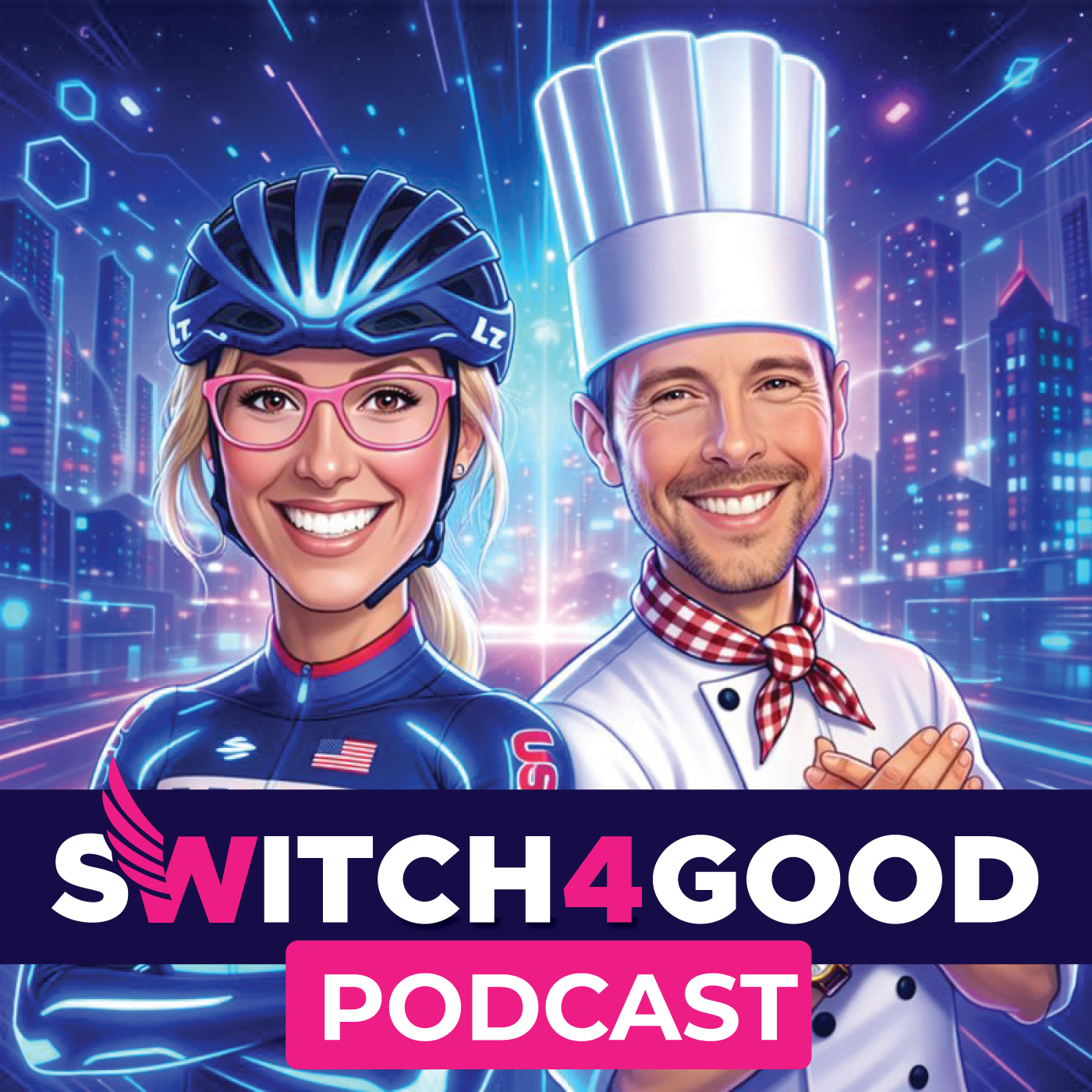
Switch4Good
Dotsie Bausch and Raphael Wrobel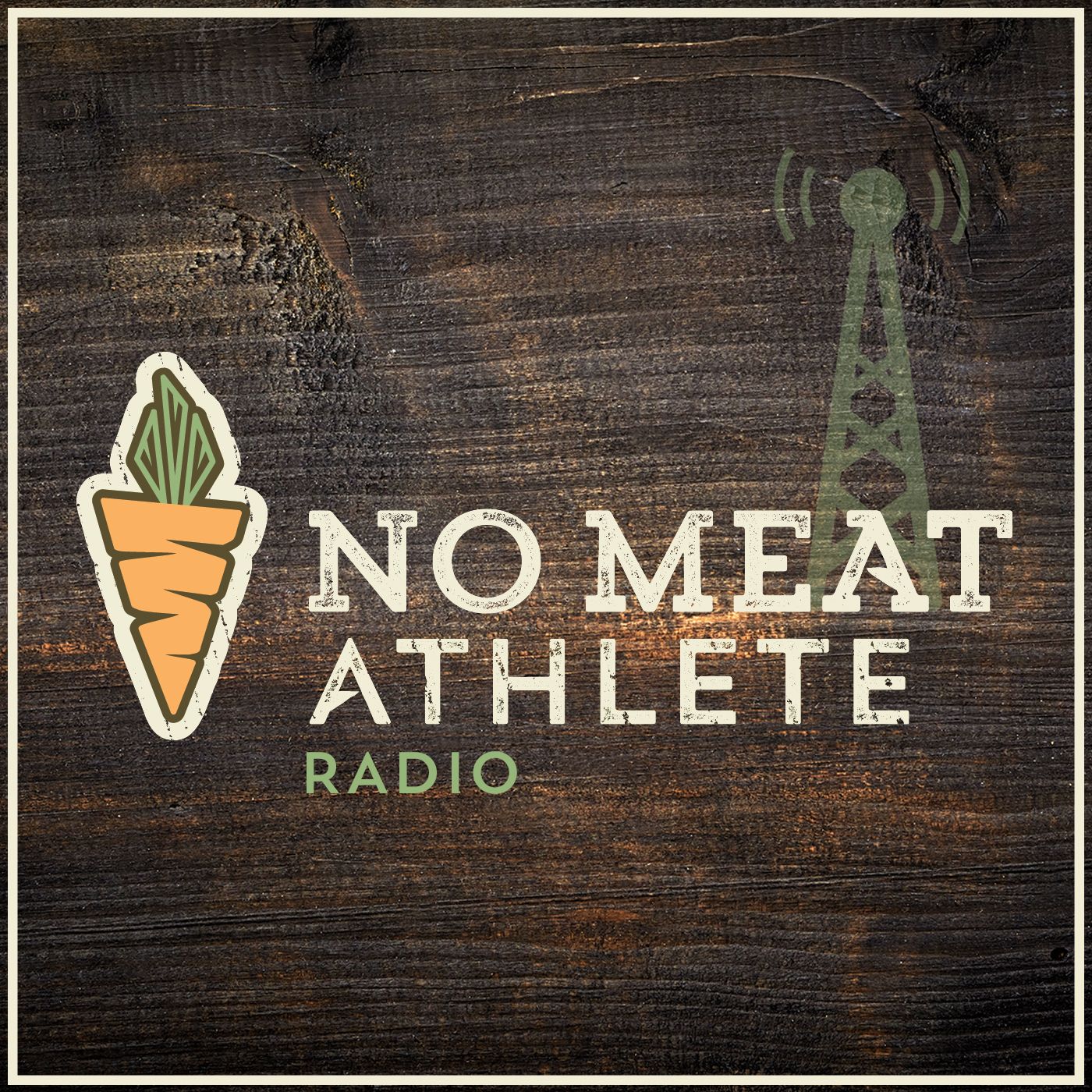
No Meat Athlete Radio
Matt Frazier
The Outlier Health Podcast
Matt Frazier, Matt Tullman, Isabelle Caputo, and Doug Hay
Plant-Powered People Podcast
Toni Okamoto and Michelle Cehn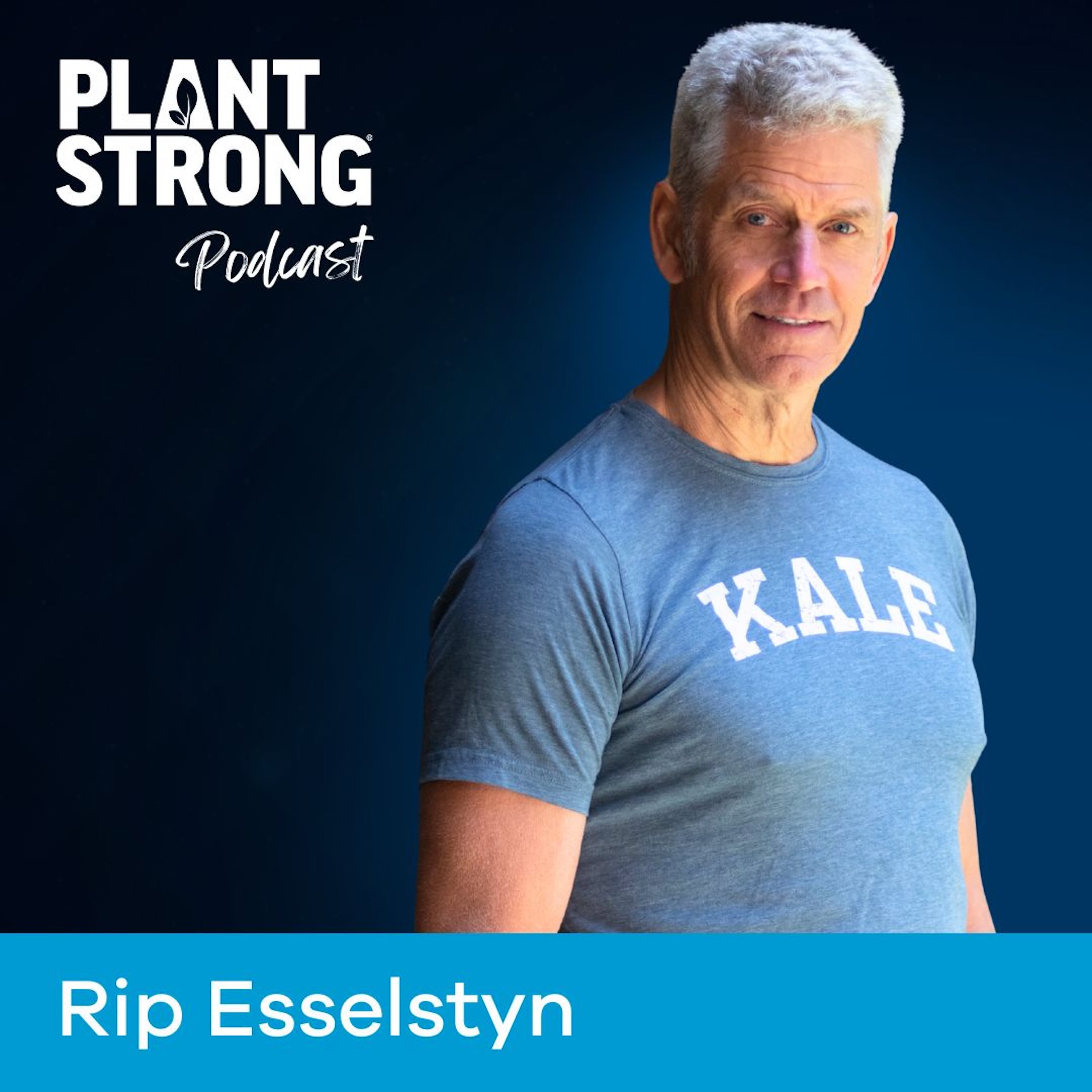
PLANTSTRONG Podcast
Rip Esselstyn
The World Vegan Travel Podcast
Brighde Reed
Vegan Kids Nutrition
Karla Moreno-Bryce, MDA, RD, LD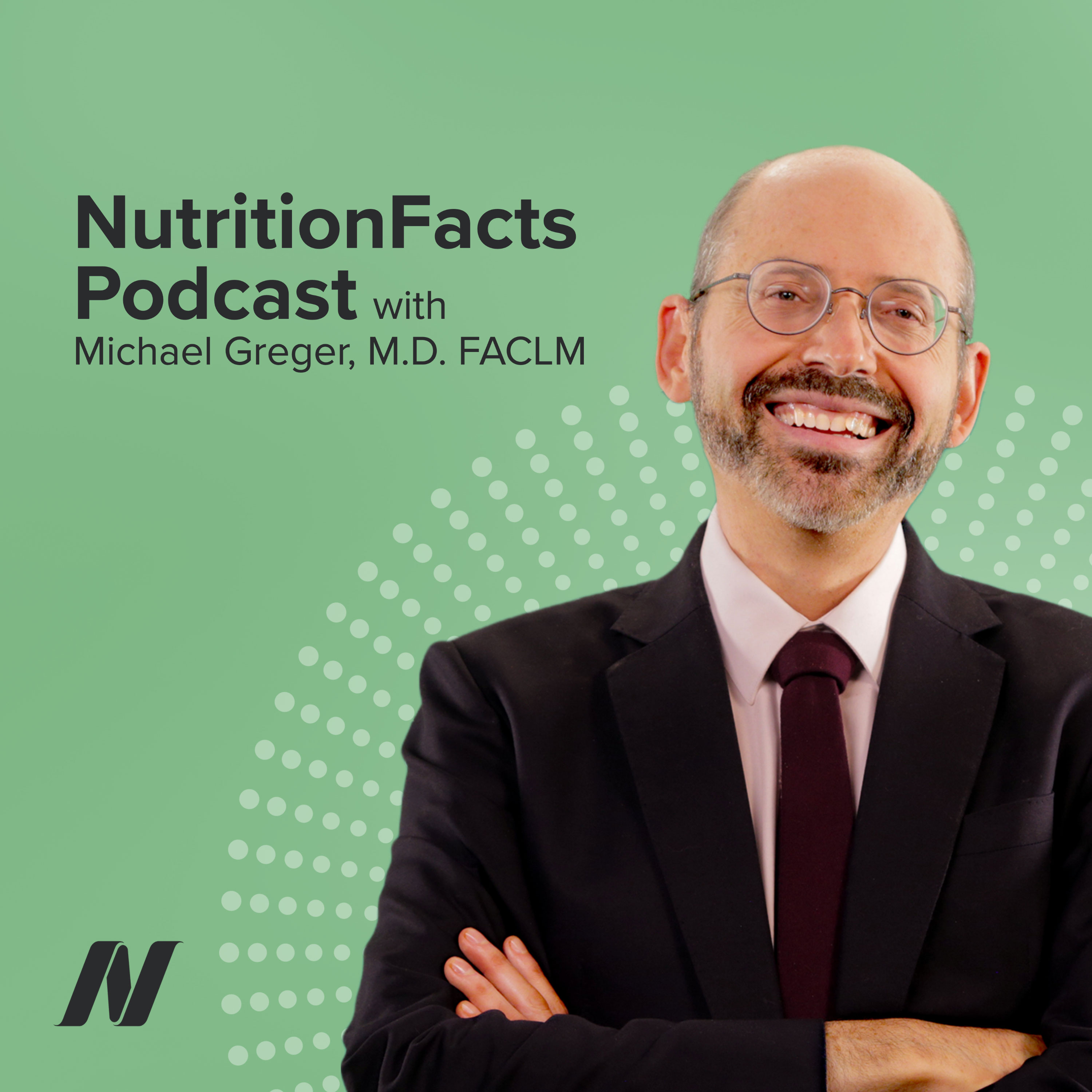
Nutrition Facts with Dr. Greger
Michael Greger, M.D. FACLM
The Plant-Based Morning Show
Matt Frazier & Doug Hay, presented by ComplementThe Plant Based News Podcast
Plant Based News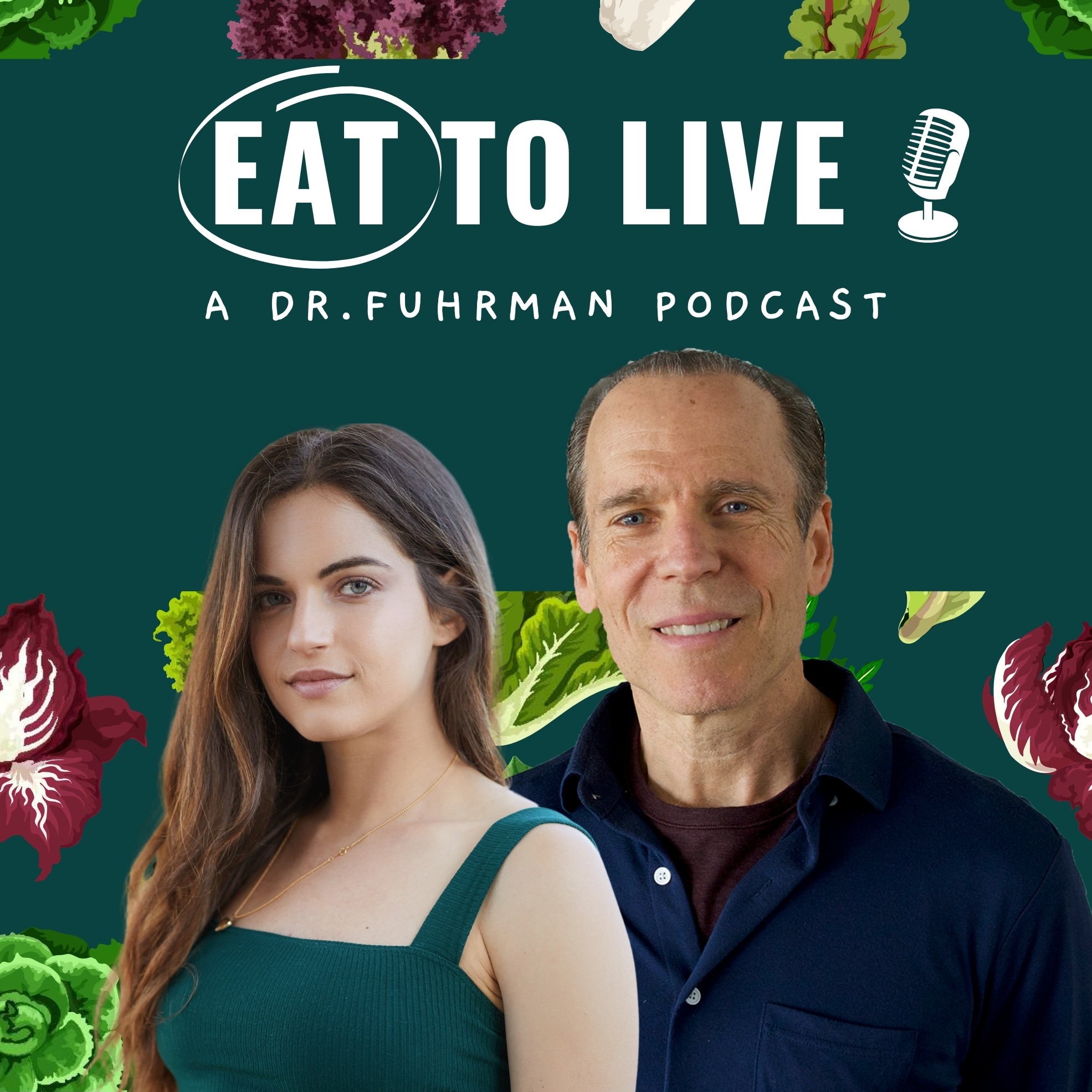
Eat to Live
Jenna Fuhrman, Dr. Fuhrman